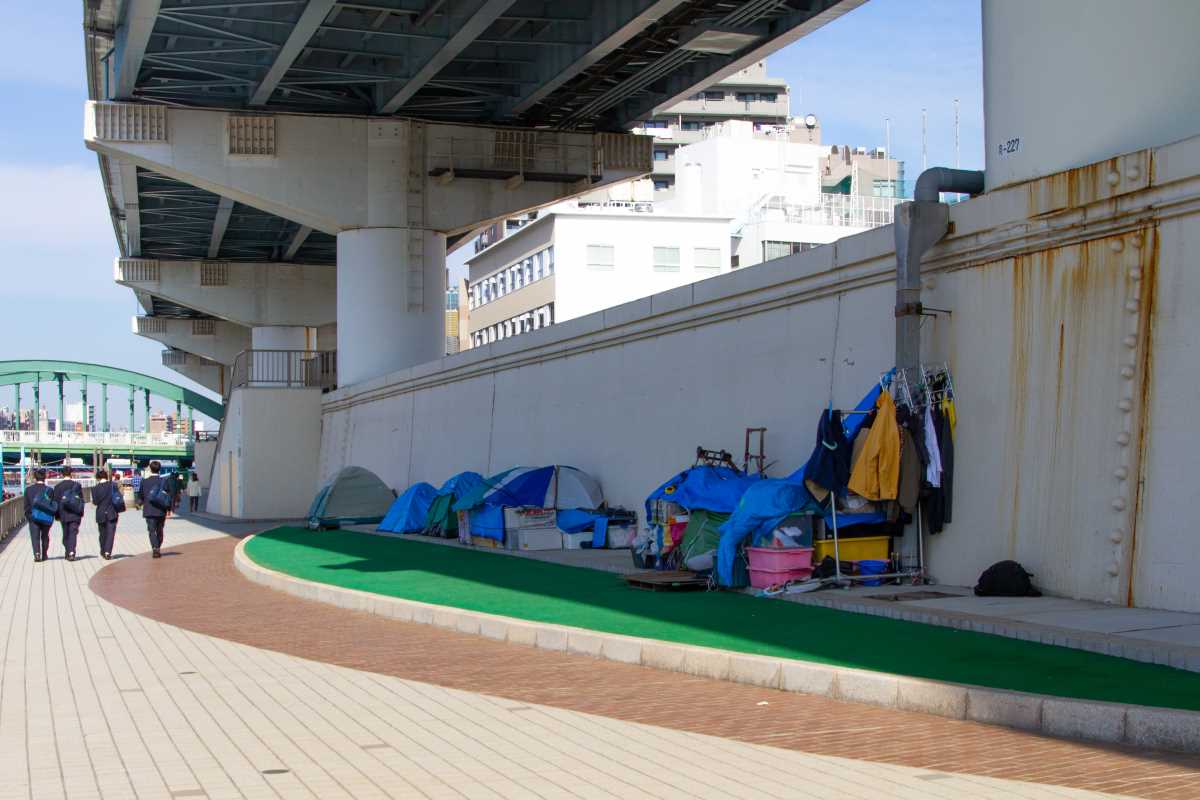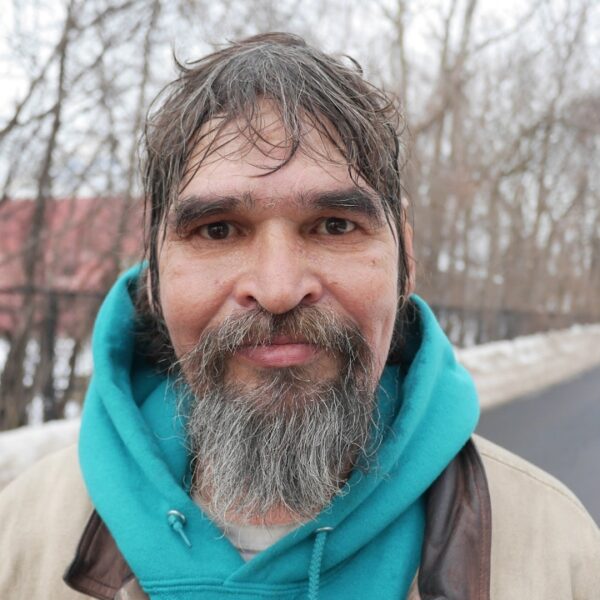We invented cancel culture. Why are we having so much trouble canceling the Olympics, an event that causes mass homelessness at a time of health and economic crisis?
It’s four in the morning. Social media channels are abuzz with articles about the upcoming Olympic Games. Many of them are written in a show-must-go-on mentality as if the passing of the Olympic torch is a milestone that claims we’ve finally graduated from the Coronavirus era. Articles written in opposition to the event, which will commence in Tokyo this July, come from a public health standpoint. It’s an important view, but not nearly as singular or central to the cause as it may appear.
In truth, there are multiple reasons why it makes sense to cancel the Olympics. Public health concerns are just one example.
Homelessness is another.
An often-overlooked aspect is how connected homelessness is to public health. The pandemic has magnified that connection, but we all too quickly forget as the turmoil lifts. This action is much to the detriment of our youth and, on an even larger scale, the entire planet.
Consider This: In Just Two Decades, the Olympics has Displaced more than 2 Million People, Rendering them Homeless all across the Globe
Their only crime? Residing in a host city.
The price? Forced evictions, rising rental prices, gentrification, and what the Centre on Housing Rights and Evictions called a “violation of their right to adequate housing.”
Even if one forges quickly past these astronomical numbers, buried beneath the ornately decorated playing fields is something far more sinister.
The proverbial torch continues to burn, passed from city to city, where criminalization of homelessness increases and environmental nutrients are depleted. Before us is a blazing spectacle of athleticism played out on a larger-than-life stage. Behind us is a wasteland we created for mere amusement, which we will not find in any professional photos.
We must again ask ourselves if this bloodsport is worth it. Are we truly prepared to wreak this kind of havoc for the sole sake of entertaining the masses?
This is an especially critical question now. Can we really afford to put on an elaborate show that only serves to make the wealthiest companies richer while making society’s most vulnerable members poorer?
A Brief Account of Homelessness as it Relates to the Olympics Reveals Harrowing Truths
In a previous post about homelessness and the Olympics, I dove deep into the history of this Ancient Greek tradition. I explained how it has always been a spectacle designed to declare wealthy people’s victory over the poor.
In modern times, this abhorrent practice is more covert, but it is also more detrimental in many ways. For example, consider the 1.5 million Chinese citizens displaced by the Olympics in 2008.
Officials forced citizens out of their residences like peasants parting for a royal caravan. According to the Washington Post, resistance was met with a mandatory one-year sentence to re-education labor.
While that sort of language might have been more cryptic in 2008, anyone who’s been following the plight of the Uyghur Muslims has a sense of how ominous a punishment that probably was. Of the more than 2 million people who have faced displacement due to residing in host cities, investigations into tactics such as “regulating dispersal zones” prove a longstanding push toward criminalization.
Curfews, unwarranted arrests, over-the-top regulations, and shifty legal tactics aid in the initial process of eviction. There are even instances of residents in host cities experiencing displacement more than once.
The Pandemic Has Opened our Eyes to the Fact that Homelessness is a Public Health Emergency. Still, We Persist in Futility for the Sheer Sake of Amusement.
Coronavirus has proven one thing: homelessness, criminalization, and infectious disease are lethal combinations.
In the wake of economic instability, an estimated 150 million new people are experiencing extreme poverty.
When you consider:
- the pandemic spurred the most significant global wealth gap in recorded history, and
- the Games has a reputation for skyrocketing rents and housing prices,
You can see how this is a recipe for disaster for anyone who is even remotely concerned about the state of homelessness.
As a point of reference, commercial and residential real estate have steadily increased in Tokyo since 2013 – the year they were announced to host.
Displacement of residents actually began then. The International Olympic Committee Evaluation Commission kicked off their meet and greet by wreaking havoc on Tokyo’s homeless community. They conducted two consecutive weeks of encampment sweeps. It’s important to note that many of the local homeless individuals were among the 160,000 people displaced due to the radioactive accident that took place in Fukushima in 2011.
Once suitably terrorizing our neighbors without walls, Olympics organizers began quietly removing residents in Kasumi, Tokyo. Some of them were losing their homes to the Olympics for a second time.
Those fortunate enough to not be displaced just yet have already been enduring excessive policing and surveillance while watching their hometown pillaged in every way imaginable – from economically to environmentally and just about every gray area between.
As KnockLA journalist Tetsuo Ogawa so eloquently puts it:
“It is clear to us that the Olympics inevitably involve removing the poor from their homes, as these mega sports events are an excuse for politicians and capitalist elites to establish large-scale urban redevelopments.”
If history serves a clearer picture of what to expect once the Greenway’s been torn down, then we should note that in Sydney, Australia, housing prices more than doubled. Rents increased 40% in the years following the Olympics there.
Many commentators have spoken about the implications of a possible COVID-19 flare-up as a result of the Olympics. Yet nobody has discussed the flare-up we should expect due to the inevitable homelessness surge once the games are over.
If history stands to rhyme, it isn’t just people who must worry about losing their homes either. The 2014 Winter Olympics were responsible for mass animal migration from Olympic construction sites in Sochi, Russia. This is an essential point as Tokyo’s people and animals are still recovering from recent and grave environmental disasters. Also, increased homelessness automatically means increased pollution, making the Greenway not so green after all in this respect.
Tokyo vows to make a more sustainable Olympics part of its legacy. However, displacement has already begun while rent and housing prices increase. This makes for a discouraging outlook from an environmental perspective, a public health perspective, and any perspective at all.
“What’s best for the athlete must be even better for the planet,” proclaims Adidas, a company that is a longstanding and proud supporter of the Olympic Games. Let that sink in.
In response to newly perceived flaws in our social structure exposed by the latest international crisis, we have individuals all across the globe rethinking the entire criminal justice system. But when it comes to homelessness caused by the Olympics (and in general), it appears we are still playing games.
In a recent poll, 80% of Japanese people opposed hosting the Olympic Games. Let’s stand with them. Talk to your representatives about taking a stand against mass displacement globally, economic ruin, and environmental destruction. Sign a petition of opposition that already has 160,000 signatures.
Another way to discourage this displacement is to not watch the Olympics this year and in years to come. This is, after all, a $15.4 billion sporting event. It would be useless if people simply chose to turn their televisions off all over the world.













